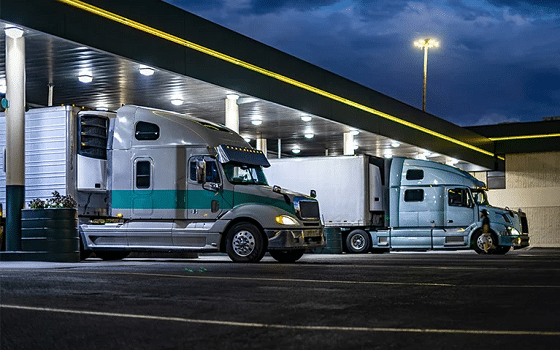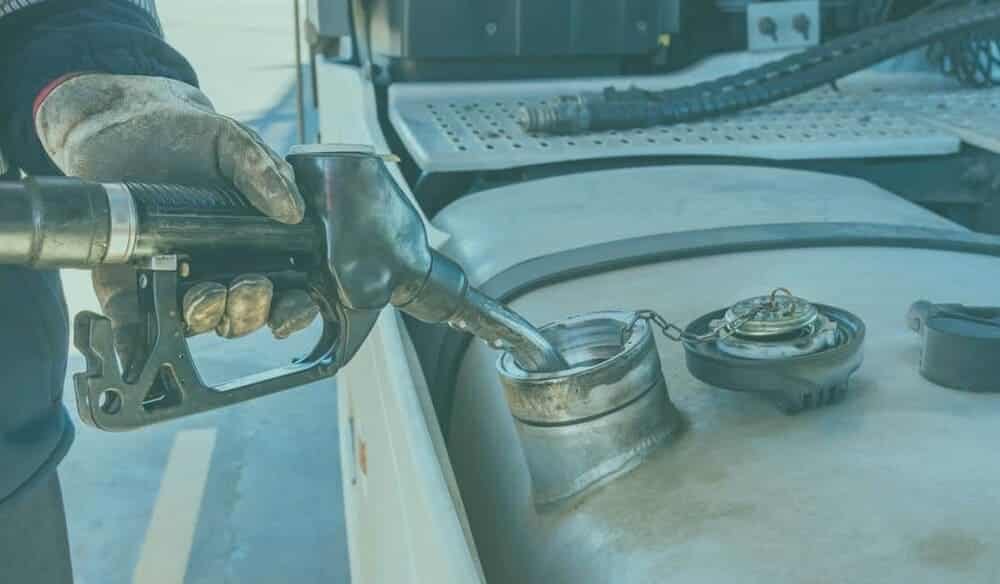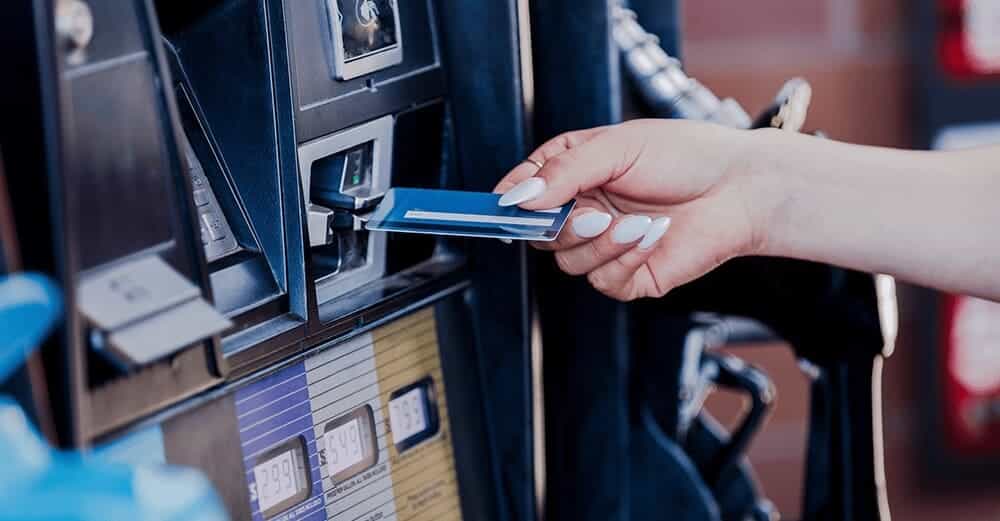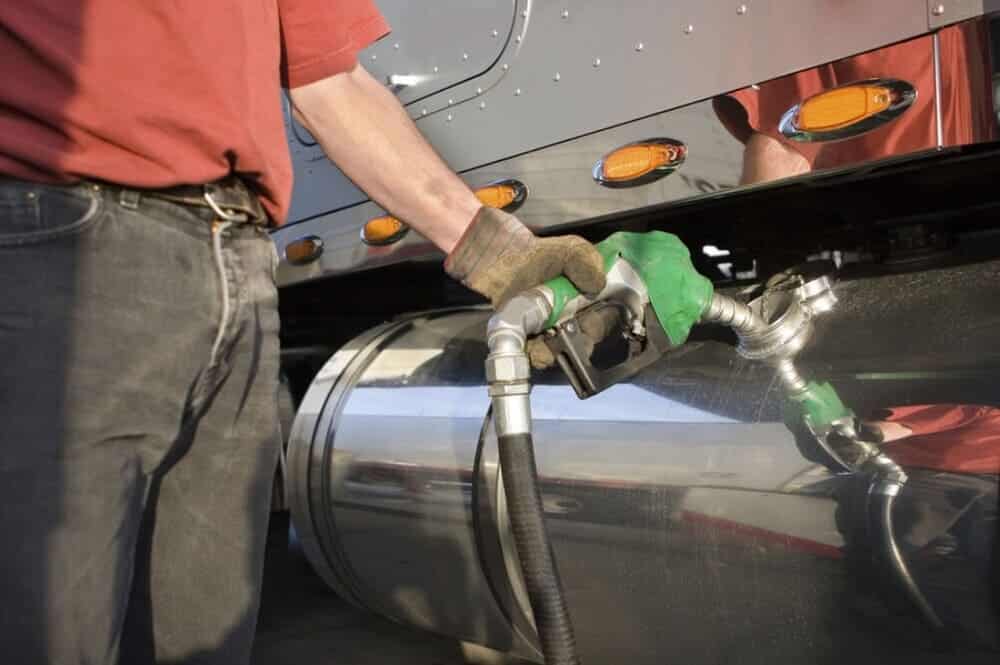
January 27, 2026

3507 Views

6 min read

September 16, 2022

2851 Views

6 min read
There are a lot of factors that go into the cost of fuel for trucking companies. The price of crude oil, refining costs, distribution, marketing expenses, and taxes all play a role in the final price at the pump. And while most trucking companies have a good handle on their own fuel costs, they may not be as familiar with how fuel cards and fuel prices work.
A fuel card is like a credit card used to purchase fuel at participating gas stations. Fuel cards are similar to regular credit cards in that they offer features like cash back or rewards points, but they also come with some added benefits specifically for truckers. For example, some fuel cards offer discounts at truck stops, and some even offer a fuel tracking feature to help trucking companies keep tabs on fuel expenses.
Other benefits of using a fuel card can include:

Fuel cards work like any other credit card. You simply swipe the card at the pump, and the purchase is charged to your account. Some fuel cards will require you to enter a PIN number for security purposes, and some may even offer an “express pay” feature that allows you to bypass the credit card reader altogether.
Most fuel cards will also come with an online account management portal to view your account activity, pay your bill, and track your fuel expenses. This can be a valuable tool for trucking companies, as it can help you keep tabs on your fuel spending and identify any potential areas of waste.
A fleet card is like a credit card used to purchase fuel at participating gas stations. It also has a few additional features specifically designed for businesses. For example, fleet cards usually have built-in expense tracking and reporting tools; some even offer discounts at certain gas stations or truck stops.
If you’re unsure which type of card is right for your business, it’s important to do your research and compare the features of each. You may also want to talk to a representative from each company to get more information about how their products work.

Gasoline is a type of fuel that is made from crude oil, and it is typically used in passenger vehicles like cars and trucks. On the other hand, Diesel is made from crude oil, but it is typically used in commercial vehicles like buses and semi-trucks.
Gasoline and diesel are similar in that they are both made from crude oil, but they are different in terms of their chemical composition. Gasoline is composed of a mixture of hydrocarbons, while diesel is composed of hydrocarbons and nitrogen.
The difference in chemical composition makes gasoline and diesel different in terms of their physical properties. For example, gasoline is more volatile than diesel, evaporating more easily. Gasoline also has a lower flash point than diesel, making it more flammable.
Finally, gasoline is less dense than diesel, which means it takes up more space per gallon.
The fuel price is determined by several factors, including the price of crude oil, refining costs, distribution and marketing expenses, and taxes.
The price of crude oil is the biggest factor in fuel price. Crude oil prices are set on the global market and can fluctuate based on several factors, including political instability, weather conditions, and global demand.
Refining costs are the second-biggest factor in the price of fuel. Refining crude oil into gasoline and other fuels is a complex and expensive process.
Refining costs can vary depending on the type of crude oil being used, the efficiency of the refinery, and the current market conditions.
Once crude oil has been refined into gasoline and diesel, it must be transported to gas stations via pipelines, tankers, or railcars. The cost of transportation is typically passed on to consumers in the form of higher prices at the pump.
Distribution and marketing expenses make up a small portion of the price of fuel. These expenses include the cost of transporting fuel from the refinery to gas stations, as well as the cost of marketing and advertising.
Finally, taxes also play a role in the price of fuel. Federal, state, and local governments all levy taxes on gasoline and diesel, and these taxes can add up to a significant amount. In some states, taxes make up a larger portion of the price of fuel than the cost of crude oil.

Fuel prices fluctuate because of political instability, weather conditions, and global demand.
Other factors that can cause fuel prices to fluctuate include changes in refining costs, transportation costs, and taxes. Fuel prices are also affected by seasonal trends, as gasoline demand typically increases during the summer.
There are a few different ways you can save on fuel, but the best way to save depends on your specific circumstances.
One way to save on fuel is to use a fuel card. Fuel cards offer discounts at participating gas stations, and they can help you keep track of your fuel expenses.
Fuel cards can be a great way to save money on fuel, but it’s important to understand how they work before you sign up for one. Make sure you know the ins and outs of fuel cards so you can make the best decision for your needs.
Research different fuel cards and compare their features to find the best one for you. Consider the fuel you use, how often you drive, and where you typically fill up. With a little bit of research, you can find a fuel card that will save you money and help you keep track of your fuel expenses.
Test